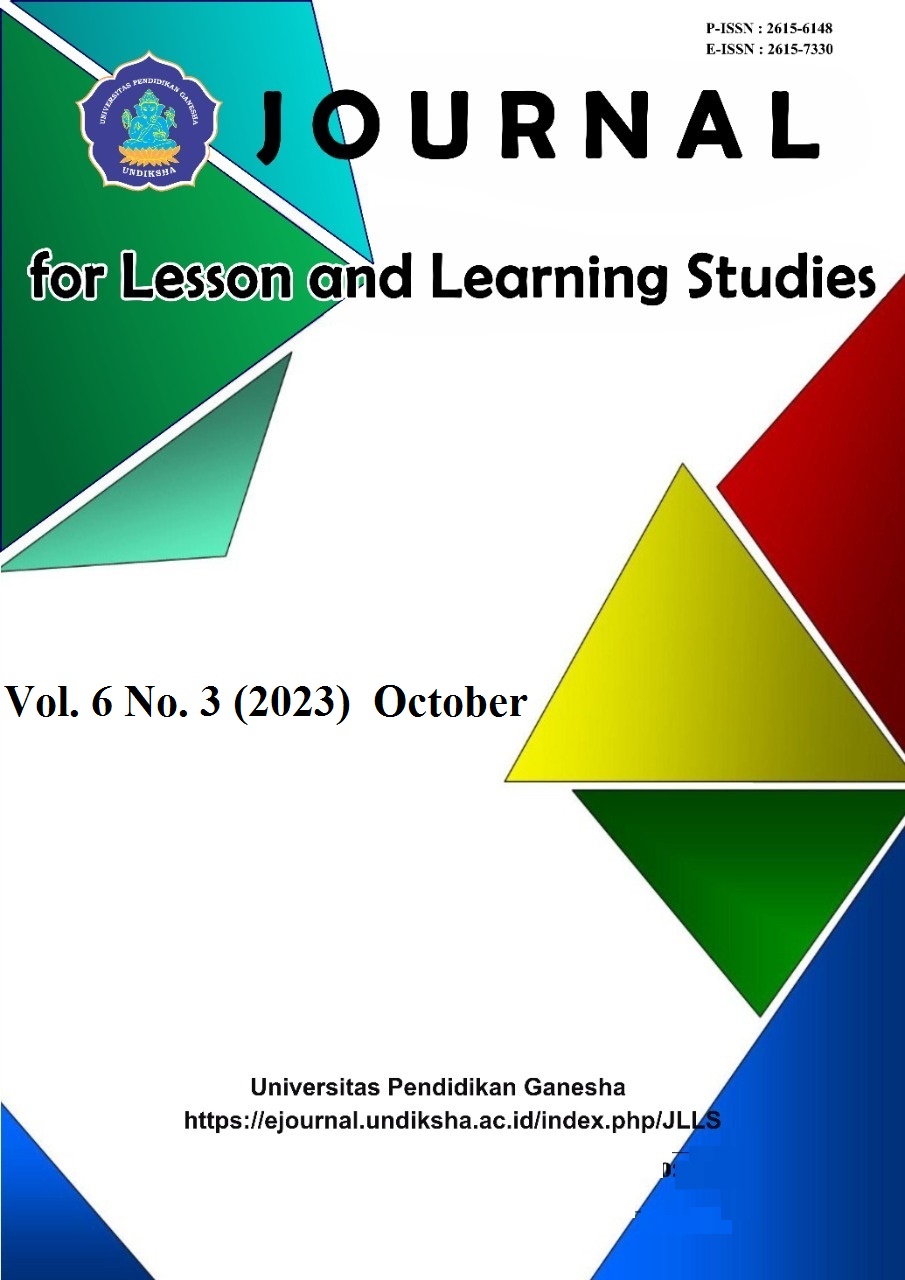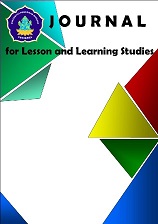A Learning and Administration Website for Interns
DOI:
https://doi.org/10.23887/jlls.v6i3.61092Keywords:
Website Learning and Administration, Attendance, ADDIEAbstract
Developers carried out the research due to limitations in developing and validating learning and administration websites for practical work participants at PT Pupuk Indonesia (Persero). This research aims to develop a learning and internship administration website at PT Pupuk Indonesia (Persero). This type of research is development research. This development research uses the ADDIE model. The subjects of this research are learning design experts, learning content experts, and learning media experts. The trial subjects were 10 practical work participants in various divisions as individual trials and 5 practical work participants in one division as small group trials. The data collection methods used were observation, interviews, and questionnaires. Data analysis techniques used qualitative and quantitative descriptive analysis techniques. The results obtained from this research are learning and administration website products. According to the learning design review, results obtained were 92% in the very good category. Learning content experts are 89%. They were learning media expert test 91.2%. Design expert test of 90.5%. Individual trials were 92.87%. Small group trials were 90.3%. It was concluded that the learning and administration website for practical work participants was very suitable for use.
References
Abdul, A. H. (2017). Design of an Online Attendance System Using Android to Accelerate Employee Attendance Process at PT. Sintech Berkah Abadi. Technomedia Journal (TMJ, 2(1).
Ahmadi, F., Sutaryono, Witanto, Y., & Ratnaningrum, I. (2017). Pengembangan Media Edukasi “Multimedia Indonesian Culture” (Mic) Sebagai Penguatan Pendidikan Karakter Siswa Sekolah Dasar. Jurnal Penelitian Pendidikan, 34(2), 127–136. https://doi.org/10.15294/jpp.v34i2.12368.
Ahsan, R. S. H. F., Nurhadi, D., & Nurjanah, N. (2023). Based Learning Media Model Website for Making Mood Boards Fashion at Vocational Education Institute. Briliant: Jurnal Riset Dan Konseptual, 8(3), 595. https://doi.org/10.28926/briliant.v8i3.1353. DOI: https://doi.org/10.28926/briliant.v8i3.1353
Amalia, F., & Brata, A. H. (2018). Analisis Tingkat Penerimaan Sistem E-Learning menggunakan Blog Gratis sebagai Alternatif Media Pembelajaran pada Guru. Jurnal Teknologi Informasi dan Ilmu Komputer, 5(3), 335. https://doi.org/10.25126/jtiik.201853640. DOI: https://doi.org/10.25126/jtiik.201853640
Andriyani, N. L., & Suniasih, N. W. (2021). Development of Learning Videos Based on Problem-Solving Characteristics of Animals and Their Habitats Contain in Ipa Subjects on 6th-Grade. Journal of Education Technology, 5(1), 37. https://doi.org/10.23887/jet.v5i1.32314. DOI: https://doi.org/10.23887/jet.v5i1.32314
Annur, M. F., & Hermansyah. (2020). Analisis Kesulitan Mahasiswa Pendidikan Matematika Dalam Pembelajaran Daring Pada Masa Pandemi Covid-19. Jurnal kajian, Pnelitian dan Pengembangan Kependidikan, 11, 195–201. https://doi.org/10.31764/paedagoria.v11i2.2544.
Asih, N., & Nilakusmawati., D. (2017). Effectiveness Application of Auditory Intellectually Repetition (Air) Learning Model To Improve Student’S Learning Outcomes on Subject Two-Dimensional and Three-Dimensional Shapes. International Journal of Advanced Research, 5(4), 933–938. https://doi.org/10.21474/ijar01/3898. DOI: https://doi.org/10.21474/IJAR01/3898
Azzahra, M. D., & Pramudiani, P. (2022). Pengaruh Quizizz sebagai Media Interaktif terhadap Minat Belajar Siswa pada Pelajaran Matematika Kelas V di Sekolah Dasar. Jurnal Cendekia : Jurnal Pendidikan Matematika, 6(3), 3203–3213. https://doi.org/10.31004/cendekia.v6i3.1604. DOI: https://doi.org/10.31004/cendekia.v6i3.1604
Bakri, F., Siahaan, B. Z., & Permana, A. H. (2016). Rancangan Website Pembelajaran Terintegrasi dengan Modul Digital Fisika Menggunakan 3D PageFlip Professional. Jurnal Penelitian & Pengembangan Pendidikan Fisika, 2(2), 113–118. https://doi.org/10.21009/1.02215. DOI: https://doi.org/10.21009/1.02215
Buchori Muslim, A. (2020). Character Education Curriculum in the Government of Indonesia Strengthening Character Education Program. JIEBAR : Journal of Islamic Education: Basic and Applied Research, 1(2), 137–153. https://doi.org/10.33853/jiebar.v1i1.101. DOI: https://doi.org/10.33853/jiebar.v1i1.101
Fahyuni, E. ., Akbar, D., Hadi, N., & Haris, M. I. (2020). Model aplikasi cybercounseling Islami berbasis website untuk meningkatkan self-regulated learning siswa SMA. Inovasi Teknologi Pendidikan, 7(1), 93–104. https://doi.org/10.21831/jitp.v7i1.34225. DOI: https://doi.org/10.21831/jitp.v7i1.34225
Fatah, R. A., Widodo, S. T., & Rohmadi, M. (2018). Pendidikan Karakter Dalam Novel Mahamimpi Anak Negeri Karya Suyatna Pamungkas Tinjauan Psikologi Sastra. Jurnal Gramatika: Jurnal Penelitian Pendidikan Bahasa dan Sastra Indonesia, 4(1). https://doi.org/10.22202/jg.2018.v4i1.2412. DOI: https://doi.org/10.22202/jg.2018.v4i1.2412
Florensius, P. (2022). Pengembangan Sistem Informasi Kehadiran Siswa Berbasis Website. JUWARA: Jurnal Wawasan dan Aksara, 2(2), 136–144. https://doi.org/10.58740/juwara.v2i2.44 DOI: https://doi.org/10.58740/juwara.v2i2.44
Fuadi, A. (2021). Landasan Pendidikan. Tahta Media Group. DOI: https://doi.org/10.36667/tf.v15i1.701
Hariandi, A., Rahmayanti, W., Wati, N., Syafia, Y. M., & Valensy, D. A. (2020). Moral Analysis in the Animated Films of Nusa Rara and Upin Ipin as Educational Shows. AL-ISHLAH: Jurnal Pendidikan, 12(2), 465–480. https://doi.org/10.35445/alishlah.v12.i2.220. DOI: https://doi.org/10.35445/alishlah.v12i2.220
Kassim, M., & Idris, A. (2018). Multimedia Project on Website Development Using Dreamweaver and Publish Domain Among Engineering Students. International E-Journal of Advances in Education, IV(12), 983–993.
Kmurawak, R. M. B., & Mandowen, S. A. (2021). Pengukuran Tingkat Kesiapan E-learning Guru di Kota Jayapura di Masa Pandemik Covid-19. Techno.Com, 20(4), 518–526. https://doi.org/10.33633/tc.v20i4.5168. DOI: https://doi.org/10.33633/tc.v20i4.5168
Kusuma, D. Y. P., & Supartha, W. G. (2020). Bridging the gap between theory and reality: Innovative approaches for effective knowledge application in the field. Journal of Economic Education, 21(2), 112–125. https://doi.org/10.1080/24735132.2020.1746489.
L.D.C.Pupuk Indonesia. (2020). Development of the Jakarta Program Assessment. Learning and Development Center.
L.D.C.Pupuk Indonesia. (2022). Development of the Jakarta Program Assessment. Learning and Development Center.
Labola, Y. A. (2019). Konsep Pengembangan Sumber Daya Manusia Berbasis Kompetensi, Bakat dan Ketahanan dalam Organisasi. Jurnal Manajemen Dan Kewirausahaan, 7(1). https://doi.org/10.26905/jmdk.v7i1.2760. DOI: https://doi.org/10.26905/jmdk.v7i1.2760
Lestari, B., & Mustadi, A. (2020). Animated video media vs comic on storytelling skills for fifth-grader: Which one is more effective? Journal for the Education of Gifted Young Scientists, 8(1), 167–182. https://doi.org/10.17478/jegys.664119. DOI: https://doi.org/10.17478/jegys.664119
Megawati, & Utami. (2020). English Learning with Powtoon Animation Video. Journal of Education Technology, 4(2), 110. https://doi.org/10.23887/jet.v4i2.25096. DOI: https://doi.org/10.23887/jet.v4i2.25096
Mihardjo, L. W., Santoso, B., & Sulistyo, D. (2021). Factors affecting the adoption of precision farming technology in Indonesia. Agricultural Information Worldwide, 13, 34–42.
Mulatsih, B. (2020). Penerapan Aplikasi Google Classroom, Google Form, dan Quizziz dalam Pembelajaran Kimia di Masa Pandemi Covid-19. Ideguru : Jurnal Karya Ilmiah Guru, 5(1). https://doi.org/10.51169/ideguru.v5i1.129. DOI: https://doi.org/10.51169/ideguru.v5i1.129
Nurhayati, N., Lasmawan, I. W., Arnyana, I. B. P., & Candiasa, I. M. (2022). effectiveness of animated videos to improve science process skills and creativity in science learning during COVID-19 pandemic. International journal of health sciences, 6(2), 942–955. https://doi.org/10.53730/ijhs.v6n2.8971. DOI: https://doi.org/10.53730/ijhs.v6n2.8971
Pramono, D., Ngabiyanto, Isnarto, & Saputro, I. H. (2021). Online Assessment pada Pembelajaran di Masa Pandemi Covid-19: Transformasi Dunia Pendidikan Menuju Paperless Policy. Indonesian Journal of Conservation, 10(2), 2020–2022. https://doi.org/10.15294/ijc.v10i2.33096.
Rachman, F., Nurgiansyah, T. H., & Kabatiah, M. (2021). Profilisasi Pendidikan Kewarganegaraan dalam Kurikulum Pendidikan Indonesia. Edukatif: Jurnal Ilmu Pendidikan, 3(5), 2970–2984. https://doi.org/10.31004/edukatif.v3i5.1052. DOI: https://doi.org/10.31004/edukatif.v3i5.1052
Rahayu, N. D., Zulherman, Z., & Yatri, I. (2021). Animated Video Media Based on Adobe After Effects ( AEF ) Application : An Empirical Study for Elementary School Students. Journal of Physics: Conference Series, 1783(1), 012116. https://doi.org/10.1088/1742-6596/1783/1/012116. DOI: https://doi.org/10.1088/1742-6596/1783/1/012116
Rahmat, A. (2013). Pengantar Pendidikan Teori, Konsep, dan aplikasi. Publishing Ideas.
Risnani, L. Y. (2019). Teknik SCAMPER : Stimulasi Kreativitas Mahasiswa Calon Guru Biologi pada Aktivitas Laboratorium SCAMPER. Jurnal Pendidikan Biologi, 12(1), 35–40. https://doi.org/10.20961/bioedukasi-uns.v12i1.27396.
Sahudra, T. M., Taher, A., & Kemal, I. (2021). E-Learning Development Management With The Schoology Improving Geographic Learning Literation. Journal of Education Technology, 5(1), 70. https://doi.org/10.23887/jet.v5i1.33631. DOI: https://doi.org/10.23887/jet.v5i1.33631
Satyawan, I. M, Wahjoedi, & Swadesi, I. K. I. (2020). The Effectiveness of Online Learning Through UNDIKSHA E-Learning During the COVID-19 Pandemic in the Physical Education Study Program. Journal of Education Technology, 5(2), 191–199. https://doi.org/10.23887/jet.v5i2.32364.
Satyawan, I Made, Wahjoedi, W., & Swadesi, I. K. I. (2021). The Effectiveness of Online Learning Through Undiksha E-Learning During the Covid-19 Pandemic. Journal Education Technology, 5(2). https://doi.org/10.23887/jet.v5i2.32364. DOI: https://doi.org/10.23887/jet.v5i2.32364
Serevina, V., & Meyputri, C. U. (2021). Development of Blended Learning Based on Website on Fluid Mechanic Material to Improve Student’s Creative Thinking Skills. Journal of Physics: Conference Series, 1876(1). https://doi.org/10.1088/1742-6596/1876/1/012070. DOI: https://doi.org/10.1088/1742-6596/1876/1/012070
Setiadi, G., & Yuwita, N. (2020). Pengembangan Modul Mata Kuliah Bahasa Indonesia Menggunakan Model Addie Bagi Mahasiswa Iai Sunan Kalijogo Malang. Akademika : Jurnal Manajemen Pendidikan Islam, 2(2), 200–217. https://doi.org/10.51339/akademika.v2i2.207. DOI: https://doi.org/10.51339/akademika.v2i2.207
Sumardi, D., Suryani, N., & Musadad, A. A. (2021). Website-Based Learning Management System (LMS) as a Tool for Learning in the Covid-19 Pandemic Period for Junior High Schools. Journal of Education Technology, 5(3), 346. https://doi.org/10.23887/jet.v5i3.38371. DOI: https://doi.org/10.23887/jet.v5i3.38371
Tegeh, M., & Jampel, N. (2017). Metode Penelitian Pengembangan. Universitas Penddikan Ganesha.
Trivedi, A., Tripathi, C. M., Perwej, D. Y., Srivastava, A. K., & Kulshrestha, N. (2022). Face Recognition Based Automated Attendance Management System. International Journal of Scientific Research in Science and Technology, 9(3), 261–268. https://doi.org/10.32628/ijsrst229147. DOI: https://doi.org/10.32628/IJSRST229147
Wilujeng, InsihWilujeng, I., Tadeko, N., & Dwandaru, W. S. B. (2020). Website-based technological pedagogical and content knowledge for learning preparation of science teachers. Cakrawala Pendidikan, 39(3), 545–559. https://doi.org/10.21831/cp.v39i3.31228. DOI: https://doi.org/10.21831/cp.v39i3.31228
Wulandari, I. G. A. A. M., Sudatha, I. G. W., & Simamora, A. H. (2020). Pengembangan Pembelajaran Blended Pada Mata Kuliah Ahara Yoga Semester II di IHDN Denpasar. Jurnal Edutech Undiksha, 8(1), 1. https://doi.org/10.23887/jeu.v8i1.26459. DOI: https://doi.org/10.23887/jeu.v8i1.26459
Downloads
Published
How to Cite
Issue
Section
License
Copyright (c) 2023 Franky Samuel Octavianus

This work is licensed under a Creative Commons Attribution-ShareAlike 4.0 International License.
Authors who publish with the Journal for Lesson and Learning Studies agree to the following terms:
- Authors retain copyright and grant the journal the right of first publication with the work simultaneously licensed under a Creative Commons Attribution License (CC BY-SA 4.0) that allows others to share the work with an acknowledgment of the work's authorship and initial publication in this journal.
- Authors are able to enter into separate, additional contractual arrangements for the non-exclusive distribution of the journal's published version of the work (e.g., post it to an institutional repository or publish it in a book), with an acknowledgment of its initial publication in this journal.
- Authors are permitted and encouraged to post their work online (e.g., in institutional repositories or on their website) prior to and during the submission process, as it can lead to productive exchanges, as well as earlier and greater citation of published work. (See The Effect of Open Access)





